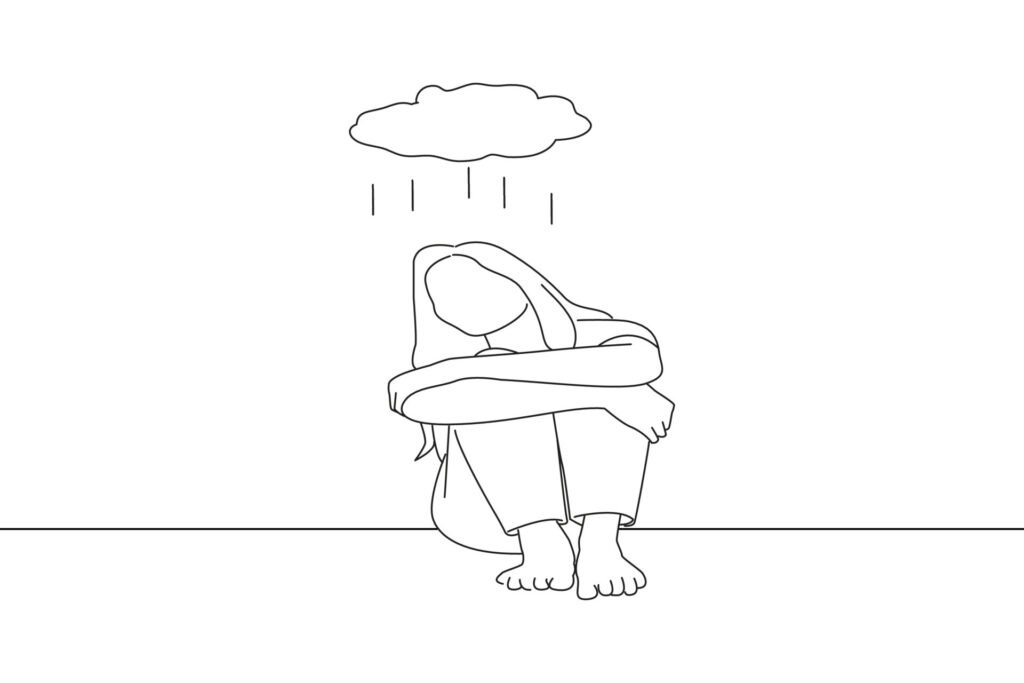
How to remove fear from mind intro
Overcoming fear is a common and essential aspect of personal growth and development. Fear can hold you back from reaching your full potential and enjoying life to the fullest. In this guide, we’ll explore some of the best ways to overcome fear and regain control over your thoughts and emotions. By understanding the nature of fear and applying these strategies, you can begin to lead a more fearless and fulfilling life.
Fear is a natural human emotion that often arises in response to perceived threats or dangers. While fear can serve as a valuable survival mechanism, it can also become irrational and paralyzing when it’s not grounded in real threats. Common fears include fear of failure, fear of rejection, fear of the unknown, and fear of change, among others.
The good news is that fear can be managed and even conquered through various techniques and practices. Here are some of the best ways to overcome fear:
- Identify Your Fears: The first step in overcoming fear is to identify and acknowledge what you’re afraid of. Write down your fears and be as specific as possible. This helps you gain clarity and take action.
- Educate Yourself: Often, fear stems from ignorance or misinformation. Take the time to research and learn about the things that scare you. Knowledge can help demystify and reduce fear.
- Practice Mindfulness: Mindfulness meditation can help you stay present and reduce anxious thoughts about the past or future. It can also help you observe your fears without judgment, making them less overwhelming.
- Set Realistic Goals: Break down your goals into smaller, manageable steps. This can make daunting tasks seem more achievable and less frightening.
- Challenge Negative Thoughts: Fear often arises from negative self-talk and irrational beliefs. Challenge these thoughts by asking yourself if they are based on facts or assumptions.
- Visualize Success: Imagine yourself successfully facing and conquering your fears. Visualization can help build confidence and reduce anxiety.
- Gradual Exposure: Gradually expose yourself to the things you fear in a controlled and safe way. This desensitization technique can help reduce fear over time.
- Seek Support: Share your fears with friends, family, or a therapist. Talking about your fears can provide emotional support and different perspectives on how to overcome them.
- Practice Relaxation Techniques: Deep breathing, progressive muscle relaxation, and other relaxation exercises can help calm your body and mind in moments of fear and anxiety.
- Celebrate Small Wins: Acknowledge and celebrate your achievements, no matter how small. Each success can boost your confidence and reduce fear.
- Embrace Failure: Understand that failure is a natural part of life and growth. Embracing failure as a learning opportunity can reduce the fear of making mistakes.
- Stay Physically Active: Regular exercise can help reduce stress and anxiety, making it easier to manage fear.
- Stay Informed: For fears related to external factors (e.g., health concerns or world events), staying informed and taking appropriate precautions can alleviate anxiety.
Remember that overcoming fear is a gradual process, and it may take time. Be patient with yourself and keep working on these strategies. Overcoming fear can empower you to live a more fulfilling and courageous life.
also read aboutHow to overcome from Loneliness | 12 tips to follow
How to remove fear from mind and heart
How to remove fear from mind and heart
Removing fear from your mind and heart is a challenging but achievable process that involves a combination of self-awareness, mindset shifts, and consistent practice. Here are some steps to help you in this journey:
- Identify Your Fears: Start by recognizing and acknowledging your fears. Identify specific situations, thoughts, or triggers that generate fear within you. This self-awareness is the first step in addressing your fears.
- Practice Mindfulness: Mindfulness techniques, such as meditation and deep breathing exercises, can help you stay present and reduce anxious thoughts. These practices can create a sense of calm and detachment from your fears.
- Challenge Negative Thoughts: Fear often stems from negative self-talk and irrational beliefs. Challenge these thoughts by asking yourself if they are based on facts or assumptions. Replace negative thoughts with more rational and positive ones.
- Seek Professional Help: If your fears are overwhelming or significantly impacting your life, consider seeking help from a therapist or counselor. They can provide you with effective strategies and support to address your fears.
- Exposure Therapy: Gradual exposure to the things that trigger your fear can help desensitize you over time. Start with small steps and gradually work your way up to more challenging situations. This can be particularly effective for specific phobias.
- Cultivate Self-Compassion: Be kind and understanding to yourself. Fear is a natural human emotion, and it’s okay to experience it. Avoid self-criticism and practice self-compassion, which can help reduce the intensity of your fears.
- Visualization and Positive Affirmations: Use visualization techniques to imagine yourself successfully facing and overcoming your fears. Positive affirmations can also boost your confidence and self-belief.
- Educate Yourself: Sometimes, fear is fueled by ignorance or misunderstanding. Educate yourself about the things that cause fear in your life. Knowledge can help dispel irrational fears.
- Build a Support Network: Share your fears with friends, family, or support groups. Talking about your fears can provide emotional support, different perspectives, and a sense of community.
- Embrace Uncertainty: Fear often arises from a desire for certainty and control. Accept that life is inherently uncertain, and learning to embrace uncertainty can reduce fear’s grip on your mind and heart.
- Practice Gratitude: Regularly focus on the things you are grateful for. Cultivating a gratitude mindset can shift your focus away from fear and towards positivity and abundance.
- Physical Health: Regular exercise, a balanced diet, and sufficient sleep can positively impact your mental well-being and help you manage fear more effectively.
- Set Realistic Goals: Break down your goals into smaller, achievable steps. This can make daunting challenges seem more manageable and less fear-inducing.
- Patience and Persistence: Overcoming fear is a gradual process that requires time and effort. Be patient with yourself and stay persistent in your efforts to reduce fear.
Remember that fear is a normal human emotion, and it’s not about eliminating it entirely but rather managing it in a healthy way. By adopting these strategies and practicing them consistently, you can reduce the hold of fear on your mind and heart, allowing you to lead a more fulfilling and courageous life.
3 ways to overcome fear
3 ways to overcome fear
Overcoming fear can be a challenging but rewarding process. Here are three effective ways to overcome fear:
- Exposure Therapy: Exposure therapy is a systematic approach to facing and desensitizing yourself to the object or situation that triggers your fear. It involves gradually exposing yourself to what you fear in a controlled and safe manner. This process allows you to become more comfortable and less anxious over time. Start with less intimidating exposures and progressively work your way up to more fear-inducing situations. For example, if you have a fear of public speaking, you might start by speaking in front of a small, supportive group and gradually increase the audience size as you gain confidence.
- Mindfulness and Relaxation Techniques: Practicing mindfulness, meditation, deep breathing exercises, or progressive muscle relaxation can help you manage fear and anxiety in the moment. These techniques can calm your mind, reduce physical tension, and improve your ability to stay present and grounded. When you’re in a calmer state, it’s easier to confront and cope with your fears. Regular practice can also help you build resilience over time.
- Cognitive Behavioral Therapy (CBT): CBT is a therapeutic approach that focuses on identifying and challenging irrational or negative thought patterns that contribute to fear and anxiety. Through CBT, you can learn to reframe your thoughts and replace them with more rational and positive ones. By changing your thought patterns, you can change your emotional responses and behaviors. Working with a trained therapist can be particularly effective in using CBT techniques to address your specific fears.
Remember that overcoming fear is a process that may take time and effort. It’s essential to be patient with yourself and persistently apply these strategies. In some cases, seeking support from a therapist or counselor can provide you with personalized guidance and additional tools to conquer your fears.
How can i train my mind to overcome fear
How can i train my mind to overcome fear
Training your mind to overcome fear involves a combination of strategies and consistent practice. Here’s a step-by-step guide to help you train your mind to conquer fear:
- Self-awareness: Start by identifying the specific fears that you want to overcome. Understand what triggers these fears and how they affect your thoughts, emotions, and behaviors. The more aware you are of your fears, the better equipped you’ll be to address them.
- Challenge Negative Thoughts: Fear often arises from negative or irrational thoughts. Practice challenging these thoughts by asking yourself questions like:
- Is this fear based on facts or assumptions?
- What’s the worst that could happen, and how likely is it?
- Have I successfully faced similar situations before?
- Mindfulness and Meditation: Incorporate mindfulness and meditation practices into your daily routine. These techniques can help you stay present and reduce anxious thoughts about the past or future. Mindfulness allows you to observe your fears without judgment, making them less overwhelming.
- Gradual Exposure: Gradual exposure to your fears in a controlled and safe manner is an effective way to desensitize yourself over time. Start with less intimidating exposures and gradually work your way up to more challenging situations. For example, if you have a fear of heights, you might start by standing on a low platform and progressively increase the height.
- Visualization: Use visualization techniques to imagine yourself successfully facing and conquering your fears. Visualize the process step by step, focusing on the positive feelings of accomplishment and relief. This can help build your confidence and reduce anxiety when you encounter your fear in reality.
- Seek Support: Share your fears with friends, family, or a therapist. Talking about your fears can provide emotional support, different perspectives, and encouragement. A therapist can also offer specialized guidance and techniques for overcoming specific fears.
- Set Realistic Goals: Break down your goals into smaller, manageable steps. This can make daunting challenges seem more achievable. Celebrate your progress and acknowledge each small victory along the way.
- Stay Physically Active: Regular exercise can help reduce stress and anxiety, making it easier to manage fear. Physical activity releases endorphins, which are natural mood boosters.
- Embrace Failure: Understand that failure is a natural part of life and growth. Embrace failure as a learning opportunity rather than a reason to fear. Each time you face a fear, you gain experience and resilience.
- Positive Affirmations: Use positive affirmations to boost your self-confidence and self-belief. Repeat affirmations that are relevant to your specific fear. For instance, if you fear rejection, you might say, “I am worthy of love and acceptance.”
- Practice Patience: Overcoming fear is a gradual process, and it may take time. Be patient with yourself and persistent in your efforts. There may be setbacks, but that’s okay. Keep moving forward.
Training your mind to overcome fear is a continuous journey, and it requires dedication and consistency. By applying these strategies and practicing them regularly, you can build the mental resilience needed to conquer your fears and lead a more courageous and fulfilling life.
How to overcome fear psychology
How to overcome fear psychology
Overcoming fear from a psychological perspective involves understanding the underlying mechanisms that drive fear and employing various psychological techniques to manage and eventually conquer it. Here are some key psychological strategies to help you overcome fear:
- Exposure Therapy: Exposure therapy is a widely used psychological technique for overcoming specific fears or phobias. It involves gradually exposing yourself to the feared object, situation, or thought in a controlled and safe environment. As you repeatedly confront your fear, your anxiety response diminishes over time. This process helps you build confidence and reduce the fear’s intensity.
- Cognitive Behavioral Therapy (CBT): CBT is a highly effective approach for addressing fear by targeting irrational or negative thought patterns that underlie it. A therapist trained in CBT can help you identify and challenge these thoughts, replacing them with more rational and positive beliefs. By changing your thought patterns, you can change your emotional and behavioral responses to fear.
- Mindfulness-Based Stress Reduction (MBSR): Mindfulness techniques, such as meditation and deep breathing exercises, are valuable for managing fear and anxiety. MBSR teaches you to stay present, observe your thoughts and emotions without judgment, and develop a more accepting and compassionate attitude toward yourself. This can help reduce the impact of fear on your psyche.
- Visualization: Visualization is a psychological technique that involves mentally rehearsing success in confronting your fear. Create a vivid mental image of yourself calmly and confidently facing the fear-inducing situation or object. Repeatedly visualizing success can boost your self-confidence and reduce fear-related anxiety.
- Systematic Desensitization: This technique involves creating a hierarchy of fear-inducing situations, starting from the least anxiety-provoking to the most intense. Gradually, you expose yourself to each situation while using relaxation techniques to manage anxiety. As you progress through the hierarchy, your fear diminishes.
- Journaling: Keeping a fear journal can help you gain insights into your fears and track your progress in overcoming them. Write down your thoughts, feelings, and behaviors related to fear, and use it as a tool for self-reflection and problem-solving.
- Positive Self-talk: Replace negative self-talk with positive and encouraging statements. When you catch yourself thinking or saying things that reinforce fear, consciously counteract them with affirmations of self-confidence and resilience.
- Self-Compassion: Practice self-compassion by treating yourself with kindness and understanding, especially when you’re facing fear. Remember that it’s okay to feel fear; it’s a natural human emotion. Treat yourself as you would a close friend who is struggling with fear.
- Goal Setting: Set specific, measurable, achievable, relevant, and time-bound (SMART) goals for overcoming fear. Break down the process into smaller, manageable steps, and celebrate your achievements along the way. This approach can help you stay motivated and focused.
- Seek Professional Help: If your fear is significantly impacting your life, relationships, or mental health, consider working with a licensed therapist or psychologist who specializes in anxiety disorders or phobias. They can provide tailored guidance and interventions to address your specific fear.
Remember that overcoming fear is a process, and it may take time and effort. Be patient with yourself and stay committed to your psychological strategies. With persistence and the right techniques, you can gradually diminish the hold that fear has on your psyche and lead a more fearless and fulfilling life.
How to overcome fear and anxiety spiritually
How to overcome fear and anxiety spirituallyChatGPT
Overcoming fear and anxiety from a spiritual perspective involves using your faith, beliefs, and practices to find inner peace, strength, and resilience. Here are some spiritual approaches that can help you manage and transcend fear and anxiety:
- Prayer: Prayer is a powerful spiritual practice that can provide comfort and a sense of connection to a higher power. Pray for guidance, strength, and the ability to release your fears. Trust that your prayers are heard and that you are supported.
- Meditation: Meditation can help you quiet your mind, reduce racing thoughts, and find inner peace. Spiritual meditation, in particular, focuses on connecting with your spiritual beliefs or a higher consciousness. It can provide a sense of serenity and detachment from fear and anxiety.
- Mindfulness: Mindfulness, when approached from a spiritual perspective, involves being fully present in the moment and accepting things as they are. This practice can help you observe your fears without judgment, reducing their power over you.
- Affirmations: Use spiritual affirmations or mantras that resonate with your beliefs to counter fear and anxiety. Repeat these affirmations daily to reinforce your spiritual strength and resilience.
- Reading Sacred Texts: Many spiritual traditions have sacred texts or scriptures that offer wisdom and guidance for dealing with fear and anxiety. Reading and reflecting on these texts can provide you with spiritual insights and comfort.
- Seek Spiritual Guidance: Consult with a spiritual leader, mentor, or counselor who shares your beliefs. They can offer guidance, support, and prayer or meditation techniques specific to your faith.
- Community and Fellowship: Participate in religious or spiritual communities that provide a sense of belonging and support. Sharing your fears with like-minded individuals can be comforting and provide you with a sense of unity.
- Forgiveness and Letting Go: From a spiritual perspective, forgiving yourself and others can be a transformative practice. Holding onto grudges or past mistakes can contribute to anxiety. Letting go and forgiving can free you from these burdens.
- Connect with Nature: Spending time in nature can be a deeply spiritual experience. It allows you to connect with the beauty and harmony of the natural world, which can help reduce anxiety and provide a sense of peace.
- Gratitude Practice: Cultivate gratitude by regularly reflecting on the blessings in your life. Recognizing and appreciating the positive aspects of your existence can shift your focus away from fear and anxiety.
- Mind-Body Connection: Explore practices like yoga or tai chi, which emphasize the connection between the mind, body, and spirit. These practices promote relaxation, mindfulness, and a sense of balance.
- Service and Compassion: Engaging in acts of kindness and service to others can be a spiritually fulfilling way to overcome fear and anxiety. By focusing on the well-being of others, you can shift your perspective away from self-centered fears.
- Trust the Divine Plan: Trust that there is a divine plan for your life and that your challenges are part of your spiritual journey. This perspective can provide a sense of purpose and acceptance in the face of fear.
Remember that spiritual growth and the process of overcoming fear and anxiety are deeply personal journeys. Choose the spiritual practices and beliefs that resonate most with you, and incorporate them into your daily life. Be patient with yourself and trust that your spiritual path will provide you with the strength and guidance you need to overcome fear and anxiety.
Fighting against fear is hard but worth it
Fighting against fear is hard but worth itChatGPT
Absolutely, fighting against fear can be challenging, but it is undoubtedly worth the effort. Here are a few reasons why:
- Personal Growth: Overcoming fear often requires stepping out of your comfort zone and facing challenges head-on. In doing so, you’ll experience personal growth and develop new skills, resilience, and confidence.
- Expanded Horizons: Fear can limit your opportunities and keep you from pursuing your dreams and goals. By conquering your fears, you open up new possibilities and expand your horizons, allowing you to live a fuller life.
- Improved Mental Health: Fear and anxiety can take a toll on your mental and emotional well-being. By learning to manage and overcome fear, you can experience greater peace of mind and reduced stress.
- Enhanced Relationships: Fear can negatively affect your relationships by causing insecurity, avoidance, or conflict. Overcoming fear can lead to healthier, more fulfilling connections with others.
- Increased Resilience: Successfully confronting and overcoming fear builds resilience. It equips you with the tools to handle adversity and bounce back from challenges more effectively.
- Freedom and Empowerment: Fear can be constricting and make you feel powerless. Conquering fear gives you a sense of freedom and empowerment to take charge of your life and make choices based on your desires rather than your fears.
- Happiness and Fulfillment: Ultimately, overcoming fear can lead to a happier and more fulfilled life. It allows you to pursue your passions, take risks, and embrace new experiences without being held back by fear.
While the journey to overcome fear may not always be easy, it is a journey of self-discovery and personal transformation. It’s about reclaiming control over your life, realizing your full potential, and living with greater courage and authenticity. Each step you take in conquering your fears brings you closer to a life that is more fulfilling and aligned with your true self.
Conclusion
How to remove fear from mind
In conclusion, overcoming fear is a powerful and transformative journey that involves a combination of mental, emotional, physical, and spiritual strategies. Fear is a natural human emotion, but when it becomes overwhelming or irrational, it can hold us back from living our best lives. By understanding the nature of fear, identifying its sources, and actively working to address and conquer it, we can experience profound personal growth and positive change.
Whether through psychological techniques like exposure therapy and cognitive-behavioral therapy, mindfulness and relaxation practices, or spiritual approaches such as prayer and meditation, there are numerous paths to overcoming fear. The key is to find the strategies and practices that resonate most with you and to approach this journey with patience, persistence, and self-compassion.
Overcoming fear is not just about eliminating fear entirely; it’s about managing it in a healthy and productive way. The process may involve setbacks and challenges, but each step taken toward conquering fear brings you closer to a life that is marked by courage, resilience, and the pursuit of your deepest aspirations. Ultimately, the effort to overcome fear is undeniably worth it, as it leads to personal growth, improved well-being, and a greater sense of freedom and fulfillment. Embrace this journey with an open heart and a determined spirit, and you’ll discover the transformative power of conquering fear in your life.
FAQs
How to remove fear from mind
Here are some frequently asked questions (FAQs) about overcoming fear:
- What is fear, and why do we experience it?
- Fear is a natural emotional response to perceived threats or dangers. It’s an adaptive mechanism that has evolved to help us survive by alerting us to potential risks.
- What are the common types of fears people face?
- Common fears include fear of failure, fear of rejection, fear of public speaking, fear of heights, fear of spiders or other animals, fear of flying, and fear of the unknown, among others.
- Is it possible to completely eliminate fear?
- While it’s challenging to completely eliminate fear, it is possible to manage and significantly reduce the impact of fear on your life through various strategies and practices.
- What are some practical steps to overcome fear?
- Practical steps include identifying your fears, challenging negative thoughts, gradual exposure to feared situations, practicing relaxation techniques, and seeking support from friends or a therapist.
- How long does it take to overcome a fear?
- The time it takes to overcome a fear varies from person to person and depends on factors such as the type of fear, its intensity, and the strategies used. It may take weeks, months, or even longer.
- Can spirituality or faith help in overcoming fear?
- Yes, spirituality and faith can provide comfort, strength, and resilience when dealing with fear. Practices like prayer, meditation, and mindfulness can be particularly helpful.
- Are there any physical symptoms associated with fear and anxiety?
- Yes, fear and anxiety can manifest physically, leading to symptoms such as increased heart rate, sweating, trembling, muscle tension, and digestive issues.
- Is professional help necessary to overcome severe fears or phobias?
- In cases of severe or debilitating fears (phobias) that significantly impact daily life, seeking help from a therapist or counselor who specializes in anxiety disorders can be highly beneficial.
- What role does mindset play in overcoming fear?
- Mindset plays a crucial role in overcoming fear. A positive and growth-oriented mindset can help you approach fear as an opportunity for personal development and learning.
- Is it okay to feel fear, or should I aim to eliminate it entirely?
- It’s entirely okay to feel fear; it’s a natural human emotion. The goal is not necessarily to eliminate it entirely but to manage and respond to it in a healthy and constructive way.
Remember that everyone’s journey in overcoming fear is unique, and there is no one-size-fits-all approach. It’s important to find strategies and techniques that work best for you and to approach the process with patience and self-compassion.
https://en.wikipedia.org/wiki/Fear
also read How to remove negative thoughts | 14 tips to remove






